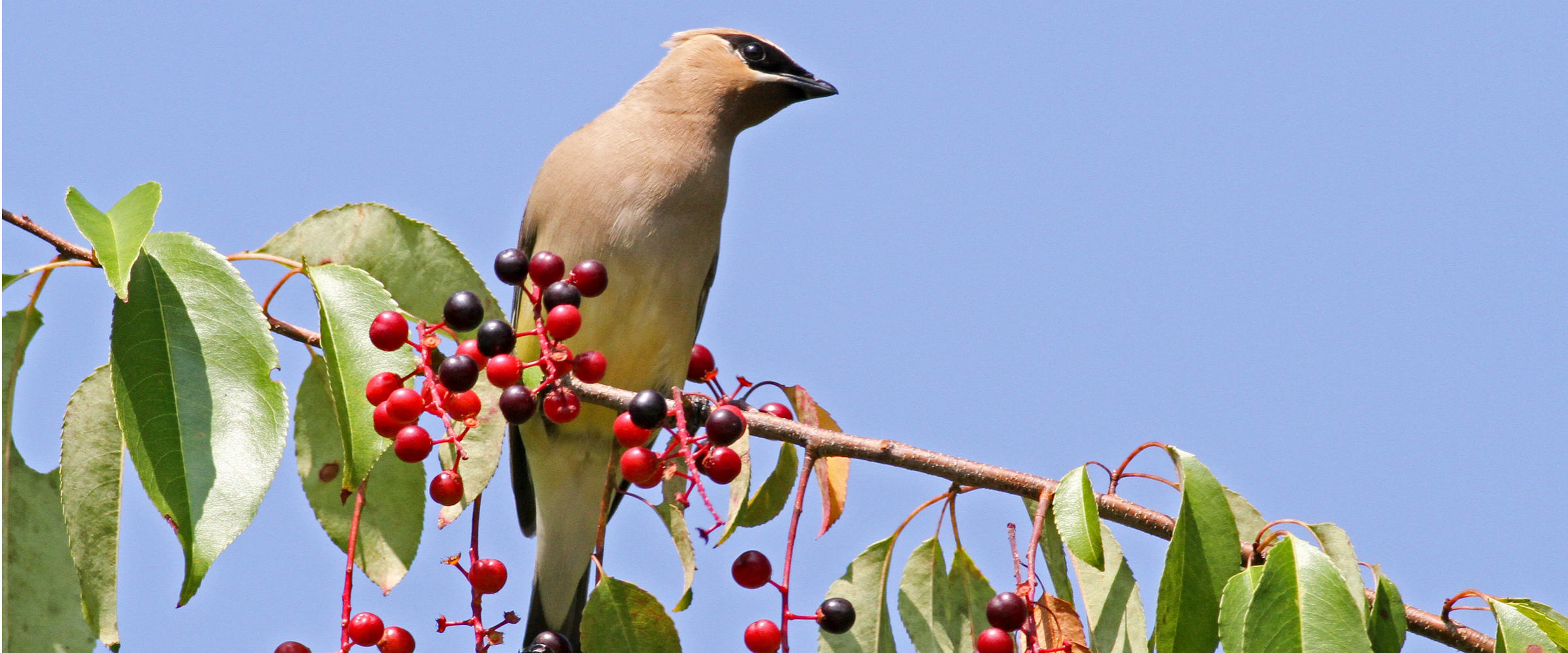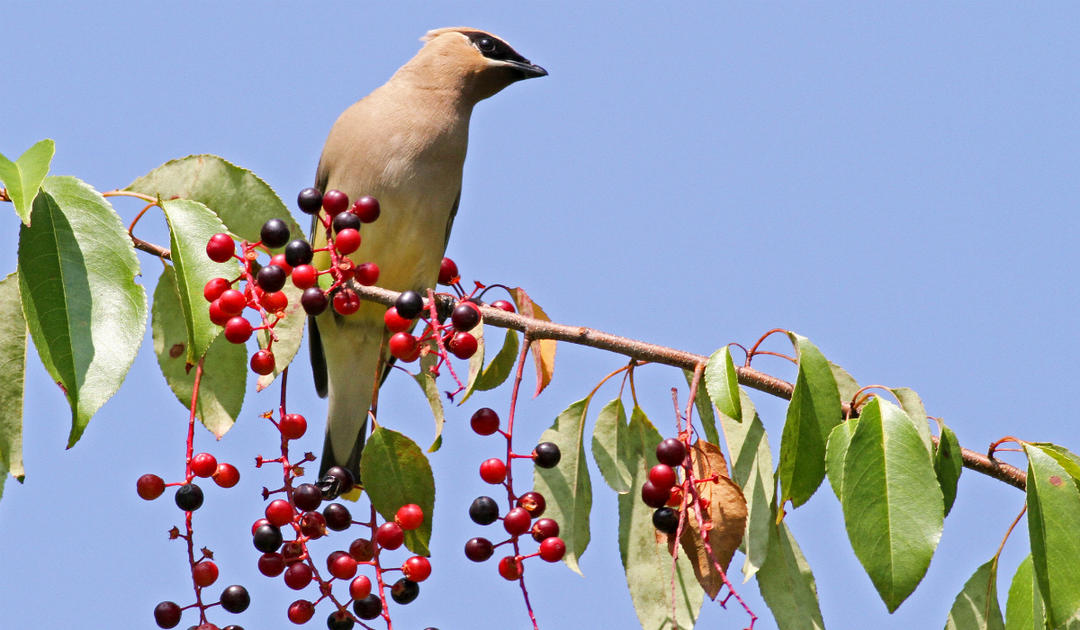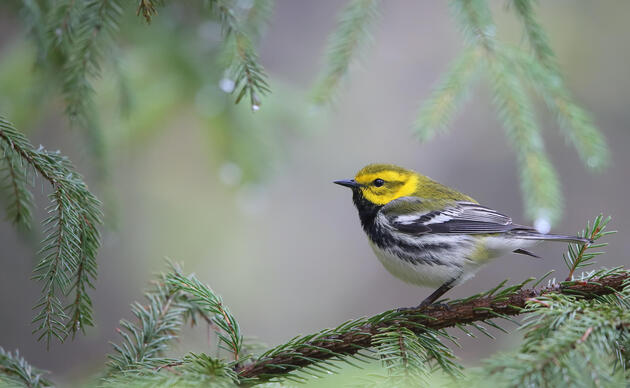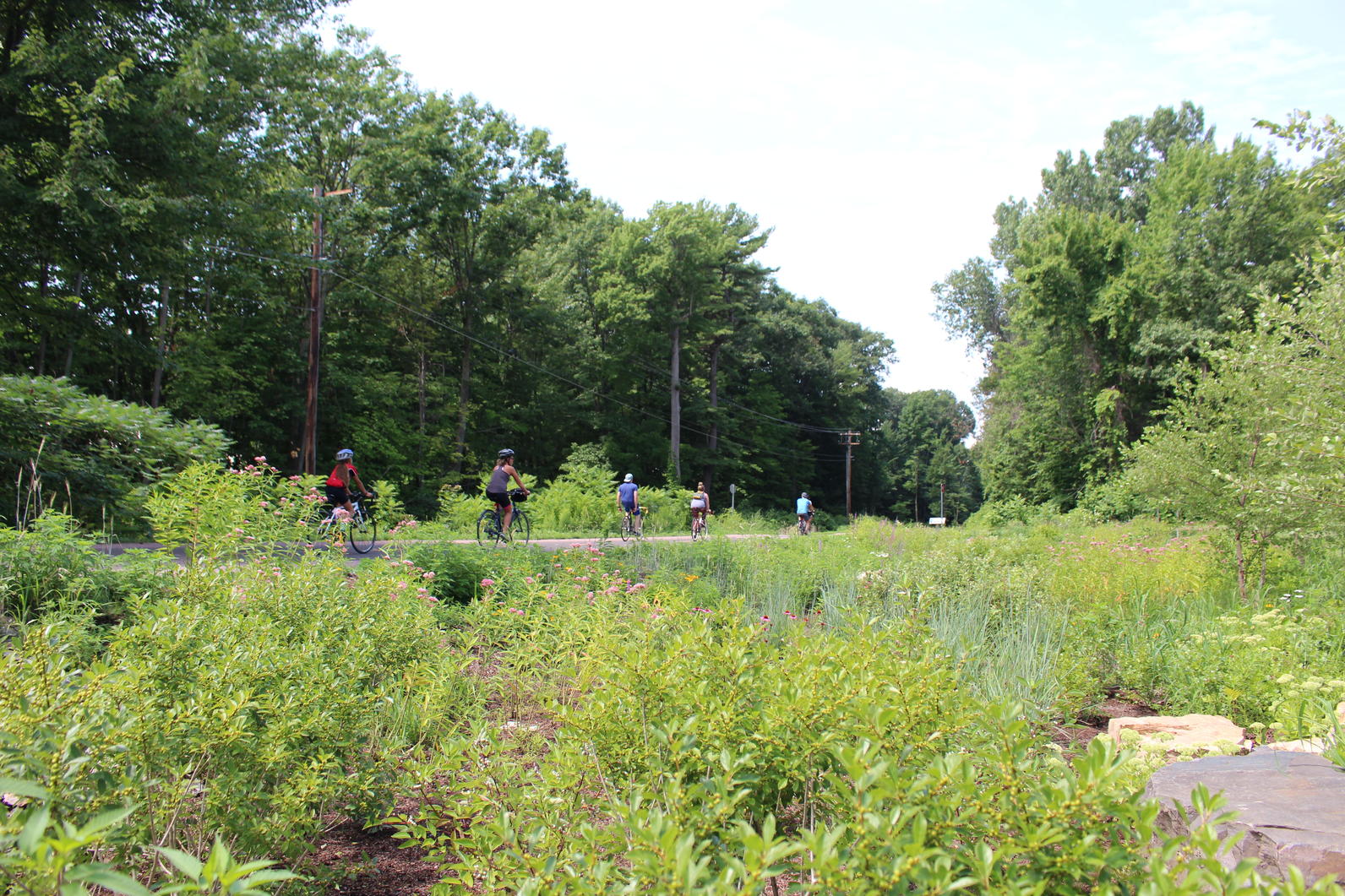
The bioswale at Burlington's Leddy Park is one of many green stormwater structures the City of Burlington is implementing in order to adapt to our changing climate. Climate change predictions project significantly increased flooding and water-erosion events in Burlington. The bioswale can capture and process an inch of rainfall from the adjacent parking lot, protecting Lake Champlain from nutrient and sediment loading and reducing erosion.
We looked to the surrounding natural areas and chose native plants that will thrive in the bioswale while providing a variety of food, shelter, and nesting sites throughout the year for birds. Native plants provide seeds, berries, and nectar for pollinators like birds, moths, and butterflies, and support an incredible variety of insects.
Native Tree Species
- Red Maple
- River Birch
Native Shrub Species
- Red-osier Dogwood
- Common Winterberry
- Fragrant Sumac
- Shrub Willow
Native Perennial Species
- Swamp Milkweed
- Joe-Pye Weed
Pollinator-Friendly Species
- Shasta Daisy
- Purple Coneflower
- Day-lily
- Black-eyed Susan
- Salvia
- Stonecrop
Find a list of local native plant nurseries in Audubon’s Plants for Birds database: www.audubon.org/plantsforbirds
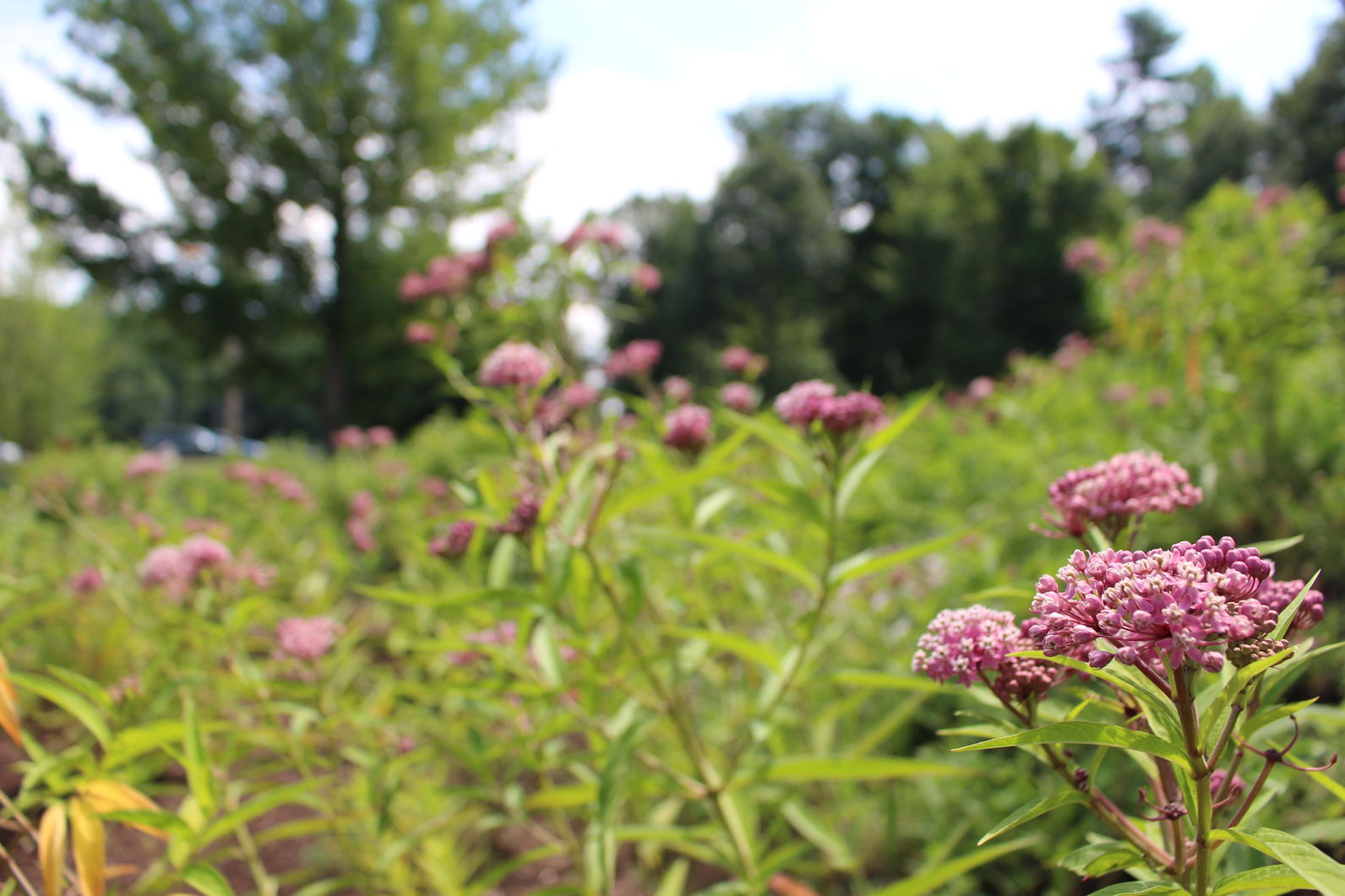
How you can help, right now
Donate to Audubon
Help secure a future for birds at risk from climate change, habitat loss and other threats. Your support will power our science, education, advocacy and on-the-ground conservation efforts.
Visit Audubon
It's always a good time to visit the Audubon Center. Trails are open to the public year-round. Visit us daily from dawn until dusk! Donations are appreciated.
Events
Adults, preschoolers, foresters, photographers, sugarmakers and families will all find opportunities to connect with nature.

